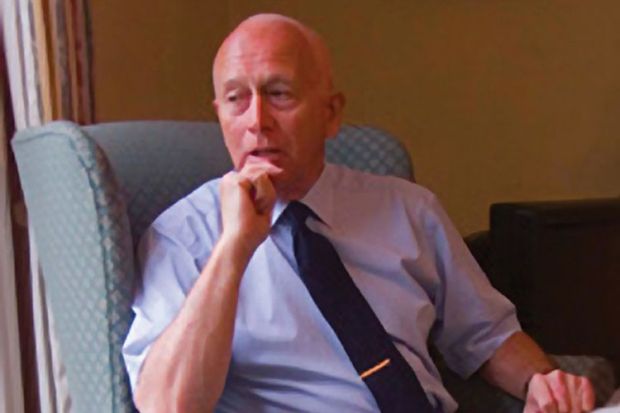Peter Frank, the son of a postman, was born on 6 May 1934. He was brought up in Whitby and left school at the age of 16. A keen cyclist, he started work as a bicycle mechanic before embarking on National Service in 1952. Faced with the alternatives of taking part in the Korean War or the Malayan Emergency, he opted instead to take up the offer to learn Russian and intercept radio communications for the Intelligence Corps. The decision was to shape the whole of his subsequent academic career.
Once he was demobbed, Professor Frank trained as a teacher and worked in a primary school, but was persuaded by his wife Mary to study Russian literature and politics at the University of Leeds, where he went on to become an assistant lecturer. In 1968, he moved to the University of Essex to set up its Soviet studies programme. He was to remain there until his retirement in 2001, mainly as head of Russian politics, although he also served as the head of the department of government (1980-81), the dean of social sciences (1981-84) and the public orator responsible for delivering speeches to honorary graduates.
A greater believer in the value of first-hand contact with the Soviet Union, Professor Frank visited the country in 1962, shortly after the Berlin Wall had gone up, and he returned in 1969 and on many subsequent occasions. His deep understanding of developments there was widely recognised when he became the go-to Soviet specialist on Channel 4 News during the major upheavals of the late 1980s and early 1990s.
“Whenever crisis and panic threatened to overtake the headlines,” recalled journalist Mark Lloyd, who worked alongside him at the time, “Peter was on hand to lend common sense and, in his interviews, gravitas, stability and immense knowledge. His calm presence was a tonic. His smile was a ray of sunshine, and he always had one.”
Although he remained a proud Yorkshireman who often escaped to the Dales, Professor Frank and his family became so attached to their Essex lives that Mary, a long-standing Labour councillor, served as mayor of Colchester from 1992 to 1993. Yet in retirement the scholar returned to his roots by publishing an acclaimed study, Yorkshire Fisherfolk (2002), which paints a vivid picture of the stoical communities on the cold, bleak, treacherous coast between the Tees and the Humber.
Professor Frank died on 14 November after several years’ ill health. He is survived by his wife, three children and seven grandchildren.

